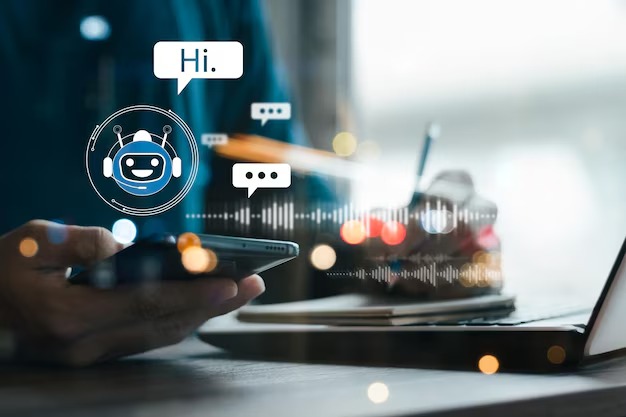The Rise of AI-Powered Chatbots in Customer Service
Published on February 27, 2025

Author: Yiga Richard
The way businesses handle customer service has evolved significantly, with AI-powered chatbots becoming a game-changer in improving customer interactions. These intelligent assistants streamline support, reduce response times, and enhance user experience. As artificial intelligence continues to advance, chatbots are transforming customer service into a more efficient and personalized process.
In this blog, we will explore how AI-driven chatbots are reshaping customer service, their key benefits, and how businesses can leverage them for success.
What Are AI-Powered Chatbots?
AI-powered chatbots are automated virtual assistants that use artificial intelligence, natural language processing (NLP), and machine learning to simulate human-like conversations. Unlike traditional chatbots that rely on predefined scripts, AI-driven chatbots can analyze user input, understand context, and provide relevant responses in real-time.
These chatbots are integrated into various communication channels, including websites, mobile apps, messaging platforms, and social media, allowing businesses to engage with customers seamlessly.
How AI Chatbots Are Transforming Customer Service
1. 24/7 Availability
One of the most significant advantages of AI-powered chatbots is their ability to provide customer support around the clock. Unlike human agents who have limited working hours, chatbots can handle inquiries at any time, ensuring that customers receive immediate assistance whenever they need it.
2. Instant Response Times
Customers today expect quick responses to their queries. AI chatbots can process and analyze customer questions within seconds, delivering instant answers without delays. This reduces waiting times and improves customer satisfaction.
3. Handling High Volumes of Inquiries
Businesses that receive a large number of customer queries can struggle with response times and efficiency. AI chatbots can handle multiple conversations simultaneously, reducing the workload on human agents and allowing them to focus on more complex issues that require human intervention.
4. Personalized Customer Experience
Advanced chatbots use machine learning to analyze past interactions, user behavior, and preferences to deliver personalized responses. They can remember previous conversations, suggest relevant products or services, and provide customized solutions, enhancing the overall customer experience.
5. Cost-Effective Customer Support
Hiring and maintaining a full-scale customer service team can be expensive. AI chatbots help reduce operational costs by automating routine queries and minimizing the need for additional human support staff. This allows businesses to allocate resources more efficiently while maintaining high-quality service.
6. Multichannel Support
Modern consumers interact with brands through multiple channels, including websites, social media, email, and messaging apps. AI-powered chatbots can be integrated across these platforms, ensuring a seamless and consistent customer experience regardless of the communication channel.
7. Improved Lead Generation and Sales
Chatbots are not only useful for customer support but also for lead generation and sales. They can engage potential customers, ask qualifying questions, provide product recommendations, and even assist in completing purchases. Businesses can use chatbots to guide users through the sales funnel efficiently.
8. Enhanced Data Collection and Insights
AI chatbots collect and analyze customer interactions, providing valuable insights into user behavior, preferences, and pain points. Businesses can use this data to improve their services, optimize marketing strategies, and enhance customer engagement.
How Businesses Can Implement AI Chatbots Successfully
To maximize the benefits of AI-powered chatbots, businesses should consider the following best practices:
- Define Clear Objectives: Identify the key areas where chatbots can improve customer service and set measurable goals.
- Ensure Seamless Human Handoff: While chatbots can handle many inquiries, they should be able to escalate complex issues to human agents when necessary.
- Continuously Train and Improve AI Models: Regularly update the chatbot's AI models with new data to improve accuracy and relevance.
- Integrate with CRM and Other Business Tools: Connecting chatbots with customer relationship management (CRM) software allows for more personalized interactions.
- Monitor Performance and Gather Feedback: Track chatbot performance metrics and gather customer feedback to refine and optimize the experience.
Conclusion
AI-powered chatbots are revolutionizing customer service by offering instant responses, personalized experiences, and cost-effective solutions. As AI technology continues to advance, chatbots will become even more sophisticated, further enhancing customer interactions and business operations.
For businesses looking to stay ahead in the digital age, implementing AI-driven chatbots is no longer just an option—it is a necessity. By embracing this technology, companies can improve customer satisfaction, drive engagement, and gain a competitive edge in the market.